Five Neuroscience Books That Changed My Life
It was a book that originally piqued my interest in neuroscience and in the ten years I’ve studied neuro, what I’ve learned from books has stuck with me longer than what I’ve learned in classes, lectures, conferences.
Why do books stick with us? Perhaps well-written books are crafted for the structure of our minds—connecting newly learned facts in our semantic memory with a memorable narrative stored in episodic memory?
Because of my belief in books and how they’ve benefited me, here’s a list of my favorite books about neuroscience and psychology:
-
The Man Who Mistook His Wife for a Hat and Other Clinical Tales – Oliver Sacks – Neurology
The Man Who Mistook His Wife for a Hat really did change my life. After taking Psychology for the rumored easy A, doing horribly, and then studying like crazy to bring up my grade, I discovered I was genuinely interested in psychology.
A friend then recommended this book, which catapulted my interest from the psychology to neuroscience and the hard problem of consciousness—how does consciousness emerge from our material brain? Oliver Sacks explores this question by looking at how changes to our or brain can result in bizarrely altered states of consciousness.
Sacks is a neurologist and writer, and in The Man Who Mistook His Wife for a Hat each chapter is a case study describing an interesting patient, and reflecting on them in a literary style. The eponymous character in The Man Who Mistook His Wife for a Hat suffers from a visual agnosia, a neurological condition where although his vision is largely intact—he can draw pictures of what he sees—he can no longer interpret his vision. Leaving his appointment, he mistakes his wife who is standing in the corner of the room for a coat rack, her head for a hat, and he ends up yanking up on her head before realizing the mistake.
Sacks is full of interesting observations and tangential stories, which he includes in the footnotes for curious readers. The Man Who Mistook His Wife for a Hat is the quintessential Sacks book, but all of his books are amazing.
Other Sacks books about neuroscience: Hallucinations, Musicophilia , The Mind’s Eye, Island of the Colorblind , Seeing Voices, Migraine, Awakenings, An Anthropologist on Mars
-
Why Zebras Don’t Get Ulcers: The Acclaimed Guide to Stress, Stress-Related Diseases, and Coping – Robert Sapolsky – Neurobiology/Primatology
Sapolsky does for neurobiology what Sacks did for neurology, explaining basic science and how it impacts everyday life. Working as a primatologist in Africa during graduate school, Sapolsky has lived an incredible life and developed an interesting worldview. His experience, scientific expertise, and humor make his books easy to read despite their sometimes complex subject matters.
Why Zebras Don’t Get Ulcers discusses the differences between the normal, natural stress animals experience in the wild and the chronic stress of modern society as well as social issues such as child abuse and poverty affect our biology.
Other Sapolsky books about neuroscience:
The Trouble with Testosterone
Monkeyluv
Primate’s Memoir: A Neuroscientists Unconventional Life Among the Baboons – Part neuroscience and primatology book, part grad school memoir, and part Africa travel memoir.
-
The Brain That Changes Itself: Stories of Personal Triumph from the Frontiers of Brain Science – Norman Doidge – Neuroscience
The Brain That Changes Itself is an exploration of neuroplasticity, the recently discovered concept that our brain is malleable and constantly remodeling itself through our life—and that it can therefore adaptive to new situations, sometimes in surprising ways.
A Psychiatrist and Psychoanalyst, some of Doidges stories are accounts of patients making dramatic recoveries through neuroplasticity-inspired interventions. For example, following a stroke that leaves a Surgeon in his 50’s with an almost un-usable arm doctors counter-intuitively good arm. This intervention doesn’t just forces him to practice and strengthen the arm affected by the stroke, but it actually prevents maladaptive changes in the brain from occurring. It prevents the good arm from “colonizing” the damaged parts of the brain that controlled the weak arm, which would have resulted in a more permanent deficit, and in fact allows some of the good arm’s brain areas to assist in the function of the weakened arm. Other stories focus on the scientists who discovered this science, intriguing findings, and interactions between humans and technology that can restore sight, balance, and even grant us extra-human sensory abilities.
Doidge has also recently published a new book about neuroscience:
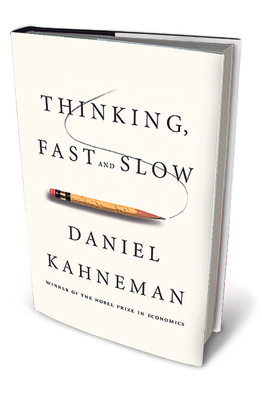
-
Thinking, Fast and Slow – Daniel Kahneman – Psychology / Behavioral Economics
Kahneman is a Psychology PhD, but he won a Nobel Prize in Economics, for showing how humans behave irrationally. This book is a combination big idea book and memoir, that includes the best hits of Kahneman’s scientific career and review of psychological fields that interest him. It may sound unwieldy when I describe it like that, but reading it is a breeze as Kahneman is charming, thoughtful, and an amazing writer.
It’s main idea is the existence of two parallel modes of thinking—a fast, irrational system that approximates truth with many biases, and a slower more rational system that is less susceptible to cognitive errors but also tires easily. He discusses when we use each system and how we can switch our thinking to the slower mode. This books is a great introduction into experimental psychology and behavioral economics, and might help you make your big life decisions more rationally.
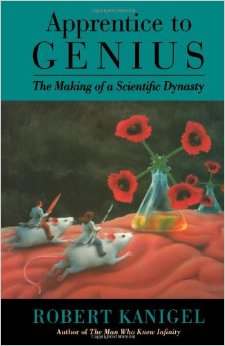
-
Apprentice to Genius: The Making of a Scientific Dynasty – Robert Kanigel – Journalism / History of Science / Sociology
Kanigel tells the remarkable story of the birth of modern pharmacology during World War 2, as scientists attempted to create anti-malarials after the axis cut off America’s access to quinine. It follows a chain of scientists and their students, which includes a Nobel Prize Lauriate, and two Lasker winners (an American award that often precedes the nobel), who among other things characterized adrenaline and discovered the opioid receptor.
More than just a study about scientific achievement and genius, Kanigel is deeply interested in the human beings who do science, and how clusters of talented scientists making important discoveries emerge. He investigates how scientists benefit from windfalls of new findings, the rich-get-richer system that concentrates funding and scientific talent, how we often misattribute the collective works of laboratories to individuals, and the importance of mentorship and transmission of laboratory culture.
If you want to know how science really works–the human struggle of it all: personalities, ego, banality, this is the best book I’ve read. I often wish this book was required reading for all science students and scientists.
Other Good Reads:
- In Search of Memory: The Emergence of a New Science of Mind – Eric R. Kandel – Kandel’s book is a memoir that goes from his Jewish childhood in Nazi-occupied Vienna, to his work on sea slugs that uncovered synaptic plasticity. When I graduated college, every neuroscience major was given a copy of this book.
- Outliers: The Story of Success – Malcom Gladwell – famous for it’s often misunderstood 10,000 hour rule, Outliers explores the factors that drive success: practice and being ahead of the curve.
- My Stroke of Insight: A Brain Scientists’s Personal Journey – Jill Bolte Taylor – a neuroscientist’s story of recovery, after she undergoes a stroke that left her unable to talk
- The Language Instinct – Stephen Pinker – An introduction to linguistics, that explains why every generation reinvents language, and why African American Vernacular English, AKA ebonics, is just as valid of a language as any other.
- Mapping the Mind – Rita Carter – An illustrated guide to the brain and some of the early research into the localization of function within it. Though perhaps a bit outdated at this point, I think it’s still an excellent guide for learning neuroanatomy and the basics of cognitive science.
- On Intelligence – Jeff Hawkins – Hawkins is one of the people responsible for the PDA, the precursor to smart phones, and he was similarly prescient in neuroscience, unfortunately academic departments at the time were not. Hawkins saw the relationship between cognition and computing and tried to pursue a degree in computational neuroscience before it was a thing. Here he outlines his ideas about thinking and computation.
- Phantoms in the Brain: Probing the Mysteries of the Human Mind – V.S. Ramachandran – Ramachandran is an amazing writer and speaker with a knack for finding and studying the most interesting stories in neuroscience. Up there with Sacks and Sapolsky, he is one of the greatest writers in neuroscience.
- The Emotional Brain Revisited – Joseph E. Ledoux – a fairly technical book that reviews neuroscience relating to emotions and how they are processed in the brain.
- Fixing My Gaze – A Scientist’s Journey into Seeing in Three Dimensions – Susan Berry – A neuroscientist who suffered from strabismus, in other words she was crossed-eyed, and therefore did not develop depth perception and a 3-d sense of the world. She learns about an old and now-neglected therapy that allows her to experience the world in three dimensions for the first time as an adult.
I believe reading more makes us more intelligent—but I don’t feel the same about even the best, most perspective-altering, life-enriching movies. I am just old-fashioned and misguided, or is there something about the written word: it’s interactivity, the attention it demands, or its abstract linguistic nature that enhances our mind? Or maybe it is just an issue of, “you are what you eat,” and you benefit from filling your head with the deliberately chosen language of thoughtful people.
What do you think of reading? Do you have books you think I should add to this list? If any neuroscience books have changed your life (or even if you just enjoyed them, haha), please leave in a comment below! I’m always looking for new books on my favorite topics.
Filed under: Books, psychology, Reading, Uncategorized | 17 Comments
Tags: Books, Neuroscience, psychology, Reading
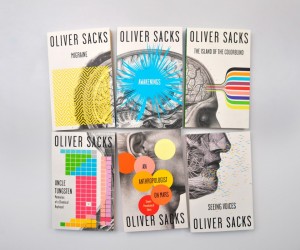
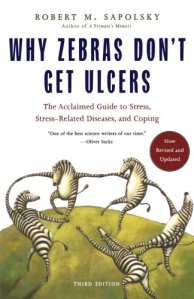
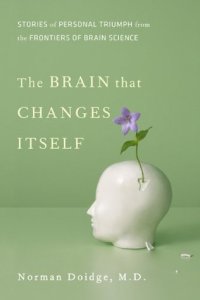

From a reddit discussion of this post. Putting it down here as I haven’t read these books, but these were suggestions in order of popularity:
1. Influence: The Psychology of Persuasion by Robert B. Cialdini http://amzn.to/2ckxg2c “This dude has a bunch of good stuff in social influence and persuasion, really great read for just generally becoming better at social interaction.”
Cialdini is also the author of Pre-Suasion: A Revolutionary Way to Influence and Persuade – http://amzn.to/2cfNw6u
2. Affect Dysregulation and Disorders of the Self by Allan Schore – http://amzn.to/2cfMC9U “If you are interested in the bridge between neurosciences and psychodynamic theory, it is a must-read. It completely changed the perspective on my work.”
3. The Worm at the Core: On the Role of Death in Life by Sheldon Solomon, Jeff Greenberg, and Tom Pyszczynski http://amzn.to/2d51ftV “A more modern and casually digestable version of the ideas behind Terror Management Theory, originally conceived by Ernest Becker in his pulitzer prize winning book, The Denial of Death. Once you learn about this, you begin to see it everywhere, in political arguments, in pop media fandoms, and of course in religions. TMT really changed how I saw the world and peoples actions and values in society. if I were ever made World Dictator and got to choose the one thing I’d force everyone to learn about in order to create a better society, this would be it, hands down.”
4. The Predictive Mind by Jakob Hohwy – http://amzn.to/2d50elH
5. Quiet: The Power of Introverts in a World That Can’t Stop Talking by Susan Cain http://amzn.to/2d50C3A
6. Descartes Error by Antonia Damasio – http://amzn.to/2d50Nfi “… looks at how rationality, as we understand it, doesn’t exist”
7. The Ego Tunnel by Thomas Metzinger – http://amzn.to/2cDGGoO “an outstanding work of neurophilosophy and very accessible reading”
8. January First: A Child’s Descent into Madness and Her Father’s Struggle to Save Her by Michael Schofield – http://amzn.to/2d50Qb6 “A father’s perspective/diary of his daughter being diagnosed with Very Early Onset Schizophrenia. This book has made a huge impact on how I view psych today.”
9. We Are Our Brains: A Neurobiography of the Brain, from the Womb to Alzheimer’s by D. F. Swaab – http://amzn.to/2d7b90T
10. The Righteous Mind: Why Good People Are Divided by Politics and Religion by Jonathan Haidt – http://amzn.to/2d1sJVg “Amazing, you’ll be able to understand and communicate with anyone, even people you thought you had nothing in common with.”
11. The How of Happiness by Sonja Lyubomirsky – http://amzn.to/2d7bO2C “I love this book. According to her research she believes 50% of ability to feel happiness comes from genetics, 10% from day to day circumstances, and 40% from our work towards trying to stay happy. She then outlines various mental exercises we should incorporate into our daily lives to maintain happiness. I have to read it again as a refresher but many of them focus on being grateful and thankful and also reinforcing relationships so we feel included in a community.”
12. Understanding Human Nature by Alfred Adler – http://amzn.to/2d52xVM
13. The Ecological Approach To Visual Perception by James J. Gibson – http://amzn.to/2d51xB5
14. The Female Brain by Louann Brizendine http://amzn.to/2cvXuSj and the Male Brain http://amzn.to/2ckyI4S – “Really enjoyable reads that show the neurology and chemisty behind the epistemological and physiological differences between biological males and females.”
15. Consciousness and the Brain: Deciphering How the Brain Codes Our Thoughts by Stanislas Dehaene http://amzn.to/2cDI5LR – “It has the most up to date information and research on the neuroscience of consciousness.
https://en.wikipedia.org/wiki/Consciousness_and_the_Brain ”
16. The Dream Drugstore: Chemically Altered States of Consciousness by J. Allan Hobson http://amzn.to/2cvYWnT – “talks about the state of mind on different drugs (SSRI’s, legal ones as well as psychoactives). I haven’t been able to get through it because the thing reads like a textbook and puts forth a lot of theories that get built upon, which are already a bit complex.
I may try again, and highlight and underline, but I would say it’s very interesting despite the complexity.”
17. Incognito: The Secret Lives of the Brain by David Eagleman http://amzn.to/2d7dbhC “Had an old Psychology professor offhandedly recommend it and I absolutely loved it.”
18. The Wisdom of Psychopaths: What Saints, Spies, and Serial Killers Can Teach Us About Success by Kevin Dutton http://amzn.to/2d52ARC – “I could not put it down and have recommended it to friends who are not into psychology (per se) and they also really enjoyed it.”
19. Visual Intelligence: Sharpen Your Perception, Change Your Life Hardcover by Amy E. Herman http://amzn.to/2d52JEI – “Really good.”
20. Willpower: discovering the greatest human strength by http://amzn.to/2cQbIdy by Roy F. Baumeister – “It has definitely had an enormous impact on my productivity and my approach to self-control.
This book is very useful if it often happens to you to be in a situation when you know that you have to do work but something is pulling you back, and you end up doing nothing or wasting time because of that. I really liked it’s scientific approach: it explains each experiment exhaustively and allows the reader to make their own conclusions.”
LikeLike
I am currently in the middle of my neuroscience module at Med School and will be sure to check these books out. I have read some of Oliver Sacks’s (RIP 😦 ) books and I completely agree – his books are genuinely life-changing. The way in which he writes about his patients is just so insightful, and absolutely interesting.
Definitely second his books.
LikeLiked by 1 person
This reminded me, in our psychiatry module, we were assigned this book: http://amzn.to/2eaGqMJ Unholy Ghost: Writers on Depression
Each chapter is a different writer’s reflection on depression. It’s really interesting to see insightful people describe depression in clear prose, and it made me aware of how varied people’s experiences of depression can be.
I’m sure you’ve got a lot going on already, but if you have time, I’d recommend it. (Could also be a good read for friends/family around you that don’t really get what you’re going through.)
LikeLike
Hello,
I really enjoyed your list. I love the Oliver Sack’s books that I have gotten to read, and because of your list I’m seeking out “Why Zebras Don’t Get Ulcers.”
I recently read a new book published by the MIT Press this past year, “Neuroplasticity,” by Moheb Costandi. It provides a more technical background of neuroplasticity but it still reads well and is very interesting.
I’m graduating undergrad double majoring [Neuroscience & Biology] and double minoring [Cognitive Psychology & Philosophy] and I really enjoy reading books. I think that a broad range of books can really enrich your life, education, or profession.
LikeLike
Thank you for the review its much appreciated as I will be embarking on Reading one of these books to further instill some knowledge on the subject of neuroplasticity as i’ve become very interested in it after reading JOE DISPENZAS – EVOLVE THE BRAIN (the science of neuroplasticity) and his second book on the subject BREAKING THE HABIT OF BEING YOURSELF (the HOW TO in using neuroplasticity to BREAK THE HABIT OF BEING (your familiar conditioned hardwired self) and a bible or guide if you like in taking practical step by step instructions to changing the familiarity of your habitual neurological self, using MEDITATION and MENTAL REHEARSAL as the medium by which to access the subconsciousness which he suggest is the mind in action, in which you gain control of to changing the pre-existing neural circuitry of your present hardwired brain
LikeLike
What a tremendous list. Thank you for this awesome article.
LikeLike
Please include Sharon Begley’s book, Train your Mind, Change your Brain, an incredible integration of research correlating the many ah ha moments in neuroplasticy. Spiritual as well, Much truth. I loved your first two books noted
LikeLike
Thanks for the suggestion Cheryl — I’ll check it out!
LikeLike
You can also add the book by Norman Doidge to the list ….recently read a fascinating book on neuroscience by Dr.Chirag Jain.. loved it…It is a new concept of explaining the science of resilience with storytelling…the link is http://a.co/iNxJBqT
LikeLike
Have found “This is Your Brain on Music” by Daniel Leviton a fascinating account that has me eager to learn a lot more about neuroanatomy–which was the reason for discovering this blog. My interest is in combating, delaying, healing or preventing neurodegenerative disorders, many of which are intriguingly intertwined.
LikeLike
Hi Ben,
Thank you for your amazing list. I ended up here while looking for more books with neuroscience topic to read. I have just ordered the one by Olivier Sacks.
I would recommend to add the Idiot Brain by Dean Burnett and “Why we sleep” by Matthew Walker. I started my interest in neuroscience thanks to those two, especially the second one. If you have time and haven’t read them yet, i would recommend!!!
LikeLike
Will have to check those out! Don’t think I’ve read either. I remember reading a book on sleep early in my days of getting into neuroscience as well and still think about it occasionally…
LikeLike
Do No Harm by Henry Marsh is a neurosurgeon’s personal and humorous account of his career (2014). Very Interesting. Also The Hacking of the American Mind by Robert Lustig is also my favorite book ever.
LikeLike
This is a great list! Thank you!
LikeLike